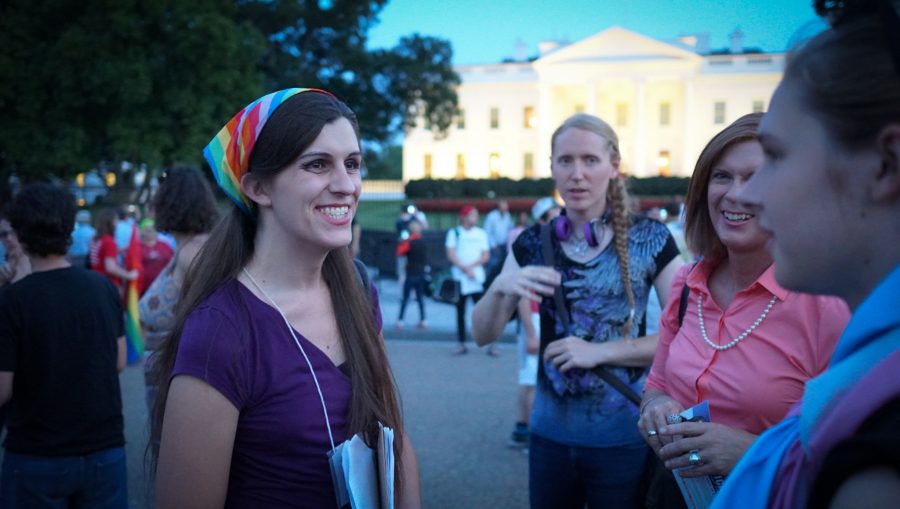
 Democrats won big in the 2017 elections this past fall: Ralph Northam was elected governor of Virginia, Phil Murphy flipped the New Jersey governorship from Republican Chris Christie, and Democrat Doug Jones was elected to the US Senate in Alabama, a state that broke for Donald Trump by 28 points in the 2016 presidential election.
Democrats won big in the 2017 elections this past fall: Ralph Northam was elected governor of Virginia, Phil Murphy flipped the New Jersey governorship from Republican Chris Christie, and Democrat Doug Jones was elected to the US Senate in Alabama, a state that broke for Donald Trump by 28 points in the 2016 presidential election.
However, perhaps overlooked were the huge state legislative victories that accompanied many of the more high-profile statewide victories: Georgia Democrats broke a Republican supermajority in the state’s Senate, Democrat Allison Ikley-Freeman won an Oklahoma State Senate seat with a margin of just 31 votes, and Democrats won two more state government trifectas — state governments with democrat-controlled houses, senates, and a Democratic governor — in New Jersey and Washington.
But maybe the most incredible — and certainly the most impactful — legislative victory this fall was the surprising wave of Democratic challengers to Republican incumbents in Virginia House of Delegates elections. Democratic candidates running in districts previously thought securely Republican led to a wave of new Democratic districts following the 2017 elections; 16 out of 100 House seats changed from Republican to Democrat, including 12 seats which were won against Republican incumbents.
Considering that Democrats were on the brink of conceding a 67-delegate supermajority to Republicans, this Democratic wave comes as a shock to many who not too long ago had considered a Democratic majority safely out of reach.
As of writing this piece, the House stands, at a slim 51-49 Republican majority following a recount in the 94th district, which ended in a tie and was decided via a lot drawing (essentially a coin toss) in early January. However, with legal challenges still expected — meaning that the current split may only be tentative — a Democratic majority can no longer be considered out of the question.
While some pundits hailed the Virginia race as a referendum on so-called ‘Trumpism,’ a closer look at the platforms of many newly-elected Democratic delegates reveals that might not necessarily be the case: The Democratic wave can be attributed more so to candidates running on local issues that matter to voters.
A prime example of this is Danica Roem (D-Manassas Park), the delegate-elect for the 13th District representing Manassas Park in Prince William County. Although Delegate-elect Roem will be one of the nation’s first openly transgender legislators, defeating self-proclaimed “chief homophobe” incumbent Bob Marshall to get to Richmond, Roem’s campaign platform did not focus on ‘transgender issues’ per se.
Instead, the cornerstone of Roem’s campaign was her pledge to fix Route 28, a highly congested highway running from Manassas to the Beltway. She has also spoken out against new tolls on I-66 and called for the raising of teacher salaries in Prince William County so that they “are no longer the lowest in Northern Virginia,”
In another historic House election, Elizabeth Guzman (D-Prince William Co. & Fauquier Co.) became the the joint-first latina delegate in the VA House along with Hala Ayala and Kelly Fowler. Guzman, who was recently elected President of the incoming freshman delegate class (i.e. delegates elected for the first time in 2017), campaigned on increasing access to mental health services in schools, boosting funding for early childhood education, and women’s rights.
And while increasing Route 28 traffic capacity or hiring more school counselors might not be bread-and-butter issues for Democrats on a national level — they certainly don’t attract the spotlight like health care, tax reform or gun control do –, they are nevertheless important issues for Virginians.
The lesson from the 2017 election is clear: if you run candidates who fit the electorate and who campaign on issues directly impacting the districts they are running represent, you have a shot at winning, regardless of how unlikely a victory may seem. Delegates like Roem and Guzman won because they focussed on following the will of their constituents, not because they tried to fit a generic party mold.
And as the 2018 House legislative term begins, a new wave of delegates will look to leverage their knowledge of issues affecting citizens to draft legislation that will create a lasting impact on their community and Virginia as a whole.
From better schools to less congested highways to creating jobs in Virginia’s many cities and counties, all these solutions stem from local and state politics, not congress or executive action. The upcoming Virginia House term will most certainly highlight the importance and impact of state legislatures when it comes to enacting tangible change in our communities.









